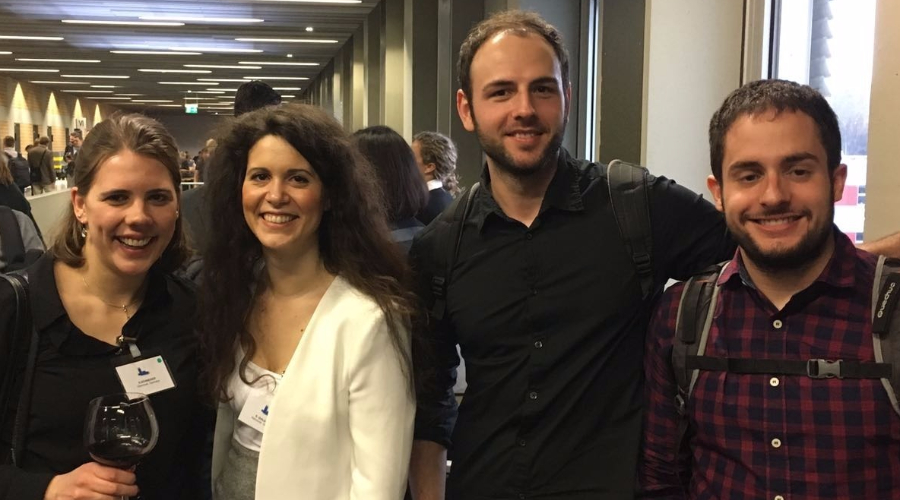
The 16th International Symposium on Acute Leukemias
Every two years, the International Symposium on Acute Leukemias brings together leading-edge clinicians and researchers to share advances in the understanding of leukemia biology, the development of new approaches to leukemia therapy, and the implementation of scientific discoveries into clinical practice. This year, all five of our PhD students from the Research Group Pediatric Hematology and Oncology displayed posters on their work at the 16th Acute Leukemias symposium (ISALXVI) in Munich. Further, Dorit’s abstract was selected as one of three Best of Free Contributions, so she also gave a talk about her research at the conference as well as a short educational interview for the Video Journal of Hematological Oncology (link: http://www.vjhemonc.com/search/?q=Schneider).
Dorit’s project, titled “Deciphering the oncogenic network of PRC2-loss guided leukemogenesis”, focuses on the mutational networks that interact with Ezh2 loss to drive acute myeloid leukemia (AML) and myelodysplastic syndrome (MDS). Patients often present with 3-5 separate, co-operating mutations that initiate and maintain the disease; therefore it is important to study whole mutational networks to improve our understanding and design effective therapies. Loss of function mutations in EZH2 are common in both AML and MDS. Dorit thus uses both in vitro and in vivo CRISPR-Cas9 co-operation screens to assess the leukemogenic potential of other genetic hits in combination with Ezh2 loss. Thus far, she has found that loss of function mutations in the genes Nf1, Dnmt3, and Runx1 have a co-operative effect with Ezh2 loss, while loss of Stag2 is dispensable for Ezh2-loss mediated induction of AML.